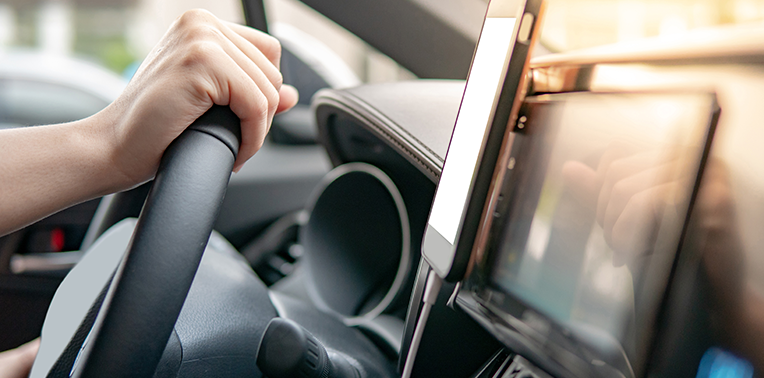Ever check your odometer before and after a trip? If you have, you may have noticed it’s not quite the distance calculated by an app using GPS. There’s a reason for that. Vehicle odometer readings are close to the actual mileage traveled, but not precise. Surprisingly, there is no federal law that regulates odometer accuracy. The Society of Automotive Engineers set guidelines that allow for a margin of error of plus or minus four percent. But that’s it. A FOX19 report on odometer readings found that four vehicles of different makes all registered inaccurate readings. Some readings overshot the mileage driven, while others under reported. Even a variance of twenty feet per mile driven could result in a discrepancy of over five-hundred miles over the vehicle’s lifetime. So what can you do about variations in odometer readings? Let’s take a look.
How do I prevent this?
If you’re noticing variations in odometer readings, here are some basic rules to follow. First, always keep your tires inflated, check your tire tread and follow regular maintenance for your vehicle. These simple steps won’t take a lot of time and should help your vehicle perform at its best. Also, know that aftermarket modifications, like custom wheels, can also have an effect on the calculated distance.
Will that guarantee your car’s odometer readings are one hundred percent accurate? No. And nothing but spending a lot of money on installing a module in your car will. Forking over a considerable amount of cash for something that should be standard in the vehicle doesn’t make a whole lot of sense. We recommend keeping an eye on your odometer reading. Use it as a close, but not precise, reflection of your driving history.
How does this affect my reimbursement?
Depending on the vehicle program your company uses, variations in odometer readings can impact your reimbursement. Businesses using car allowances aren’t affected, while accountable allowance and mileage reimbursement programs are. Let’s take a look at the difference between manual and automated mileage capture.
Manual Mileage Recording
In a mileage reimbursement or accountable allowance program, you need to record your mileage. The information you take down to meet IRS compliance standards include the odometer reading before and after each trip. If your vehicle’s odometer doesn’t accurately reflect the miles you drive each trip, that could be costing you cents per mile.
Automated Mileage Capture
Employees driving in a FAVR, car allowance or mileage reimbursement program may use an app to record and submit mileage logs. The right apps use GPS signals to pin-point the driver’s location throughout the day. This app computes the distance traveled and accurately reflects this in the mileage log. Variations in odometer readings have no impact here. Your monthly reimbursement is based on the app’s mileage log, not the mileage on your vehicle.
Fleet Personal-Use Tracking
Fleet vehicles are another program where variations in odometer readings can have an impact. The IRS considers the personal use of company cars a taxable benefit. Employees should be recording their personal mileage and paying for that personal use at the end of each year. A lot of company’s simply charge a flat fee. However, without accurately accounting for the personal use can expose both employer and employee to audit risk.
Employees recording their mileage using the odometer run the risk of being overcharged for their personal use. The best method to ensure accuracy is a fleet-mileage tracking app. Like any automated mileage capture option, the right app uses GPS to more accurately reflect miles traveled. Those miles could be business or personal.
So what if there are variations in my odometer reading?
So there can be variations in odometer readings. How much does that really impact a reimbursement? If you’re only receiving a few cents-per-mile, it’s not all that much. Well, sure, the difference between your vehicle’s odometer reading and an app’s GPS-calculated distance aren’t aggressively off. But those cents add up. Missing a mile or two every trip could easily be 10 in a week. By end of year, that number is in the 100s. That’s where accuracy matters.
What comes next?
Accurate mileage reimbursement starts with accurate mileage logs. Automating those mileage logs with a GPS-enabled app not only ensures accuracy, but also reduces busy work around manually recording them. Reach out to your company’s HR team to see about guaranteeing accurate reimbursements for mobile workers.







